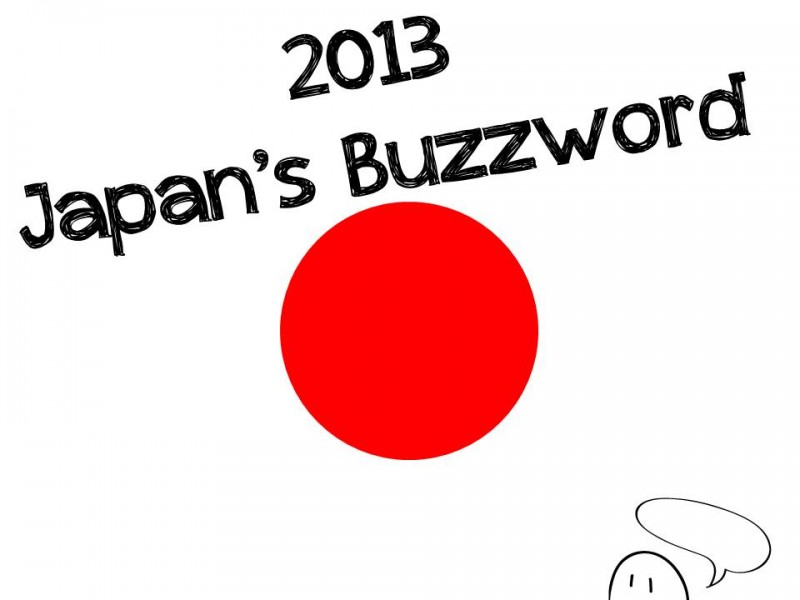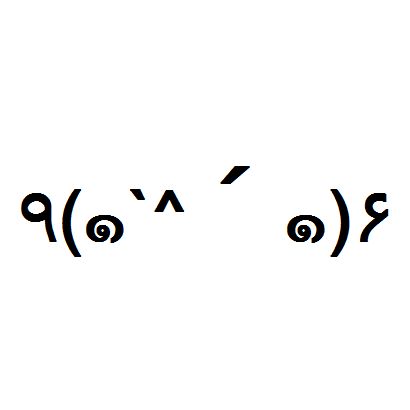
In 2013, Japan had variety of newly introduced phrases and words. Image by Keiko Tanaka
Among the slew of new and popular words to emerge in Japan this year, only four have risen above the rest to win the honor of the 2013 New Buzzwords Award [ja], an annual distinction handed out by distance learning company U-Can and publishing firm Liberal National.
In an unprecedented result, the four winners tied for first place out of 50 nominees. They are:
1. Imadesho!
Meaning “how 'bout now?!”, the phrase was made popular by Hayashi Osamu, a lecturer who teaches modern Japanese at a specialized school known as a cram school, after he used it in a commercial for the school, saying that it was about time that the viewer start studying for exams.
2. O-mo-te-na-shi
Simply the spelling aloud of the Japanese word “omotenashi”, meaning hospitality, this buzzword was introduced to the Japanese language by Christel Takigawa, a news presenter who spoke at the final Olympic bid meeting for Japan. Hospitality and warm welcomes that are deeply rooted in Japanese society.
3. Jejeje
Meaning “What? What?! WHAT!?”, the phrase entered the public's vocabulary thanks to the 2013 widely popular television drama “Amachan.” This is part of a dialect used by the main character who is from the Tohoku region to express surprise. She tries to become a celebrity idol in Tokyo, and finally returns to Tohoku to help revitalize the area after the Great East Japan Earthquake.
4. Baigaeshi
Also from a popular television drama, “baigaeshi” means “two-fold payback” or “revenge” and is the catchphrase of the main character on “Hanazawa Naoki,” a banker who stands up to his unreasonable boss.
Twitter user Yukihiro Matsumoto commented about the television link between all four of the top words:
流行語大賞。4つ選ばれたものすべてがテレビ由来ということは、テレビの影響力はまだまだ大きいってことだよね。
— Yukihiro Matsumoto (@yukihiro_matz) 2013, 12月 2
With the Buzzwords Award, the fact that all four selected words have some basis in television just goes to show that television’s sphere of influence is larger than before.
Among others that entered into the top ten on the list announced on December 2, 2013 was “hate speech”, a word that was on the lips of many in 2013, a year that saw anti-Korea protesters, angry over the popularity of Korean products on the Japanese market, grow more vocal.
Other words in the top ten included “PM 2.5”, as it is commonly called, or atmospheric pollution in the form of particulate matter, which became a buzzword stoked by fears that neighboring China's pollution is reaching Japan; “Secret Protection Bill,” a controversial bill that would toughen penalties for leaking national secrets; and “Abenomics,” a sort of slogan for the administration of President Shinzo Abe’s economic policies.

Ascii art used to describe gekiokopunpunmaru, a new buzzword used in 2013 to express one's anger
Net Buzzwords Award
Another award, this time the “Net Buzzword Award [ja],” which was announced on December 2, seemed to generate even more talk. The award, which highlights popular words from the Internet, is carried out by a Japan's search engine company, and decided by users from 2chan, an online bulletin board, who cast their votes [ja] on what they think were the most well-noted phrases of the year.
The Net Buzzwords Award also awarded the top spot to “Imadesho!”, while “Baigaeshi” took third. In second place was “gekiokopunpunmaru”, a phrase that childishly expresses extreme anger in the form of an onomatopoeia and therefore is fairly difficult to translate into English.
Commenting on the similarities between the Net Buzzword and New Buzzword awards, Twitter user Katsura Igarashi wrote:
ネット流行語大賞が普通の流行語大賞と大して変わらないの、隠れ家としてのネットの終焉だなあ。
— 五十嵐桂 (@tvoisdeadend) 2013, 12月 2
The Net Buzzwords Award and the regular Buzzwords Award were pretty much the same. This is the end of the Internet as a refuge .






